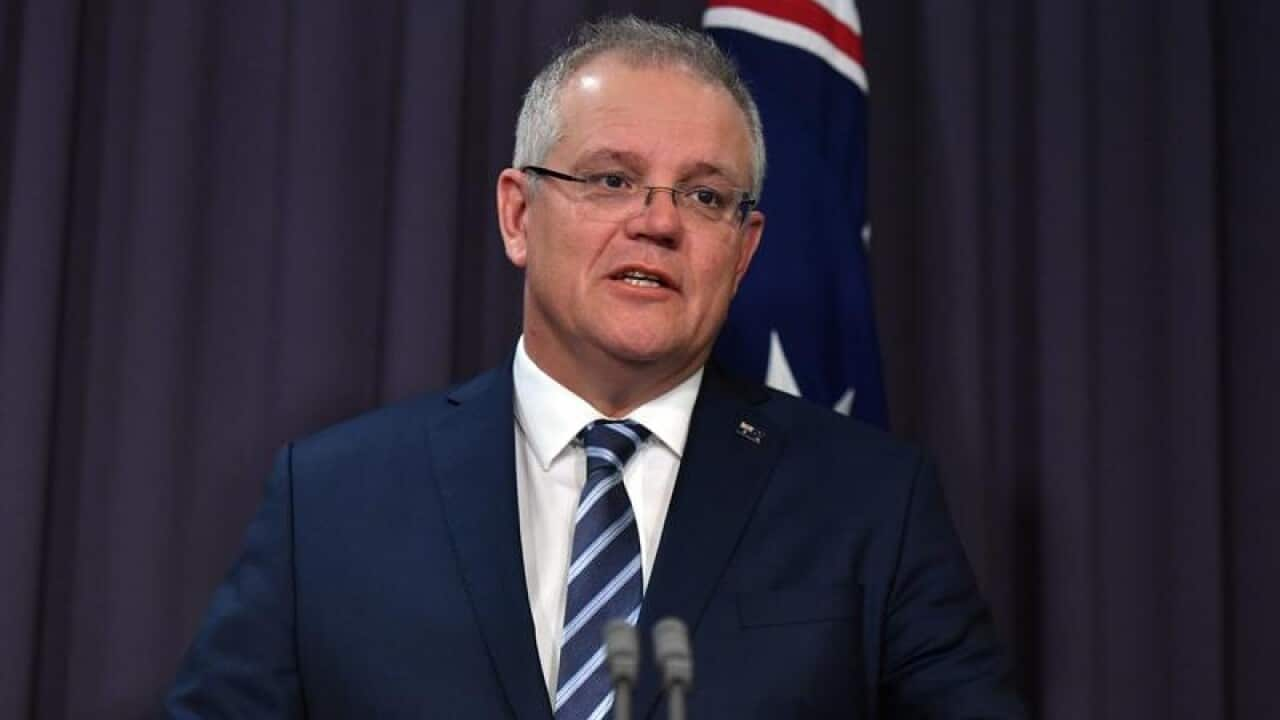India's Prime Minister Narendra Modi says his country is "hurt and angry" after a border clash with China that has left 20 troops dead, and warned that the army has been given free reign to respond to any new violence.
India and China have blamed each other for the high-altitude clash on their contested Himalaya frontier on Monday, which also left Chinese casualties after brutal fights with nail-studded batons, rocks and rods covered in barbed wire.
Mr Modi called a rare meeting with opposition party leaders to discuss the simmering crisis hours after China released 10 Indian troops, including two majors, it had seized in the battle in the Galwan valley of Ladakh region.
Amid mounting calls for a boycott of Chinese products and highly-charged public funerals for the dead soldiers, Mr Modi said "the entire country is hurt and angry at the steps taken by China".
The prime minister denied that any Chinese forces were "inside our territory" and insisted that "upholding sovereignty is foremost" for his Hindu nationalist government.
"The armed forces have been given a free hand to take all necessary steps," Mr Modi said. India and China have rushed reinforcements to the border since the most serious incident between the world's two most populous countries in more than four decades. The neighbours fought a full-scale border war in 1962 and have not agreed a frontier since.
India and China have rushed reinforcements to the border since the most serious incident between the world's two most populous countries in more than four decades. The neighbours fought a full-scale border war in 1962 and have not agreed a frontier since.

Members of Abhijan Club burn an effigy of Chinese President Xi Jinping and a Chinese flag during a protest against the deaths of Indian army personnel. Source: Hindustan Times/Sipa USA
Amid international concern over the clash, top US officials including Secretary of State Mike Pompeo have sided with India in accusing China of escalating tensions.
Boycott calls
The release of the 10 soldiers late Thursday, confirmed by Indian security officials, followed several rounds of talks between top military officers and the foreign ministers on both sides.
China did not confirm the release but a foreign ministry spokesman said there were no Indian troops "currently detained" and that the two countries "are in dialogue to resolve the matter on the ground through military and diplomatic channels".
Eighteen troops were being treated for serious injuries after the battle, the Indian military said. Security officials told AFP that four were in critical condition.
China has admitted that its forces suffered casualties but has not given figures.
Funerals for the Indian soldiers, many attended by thousands of people, have become rallying points for calls to boycott China.
Chinese flags and posters of China's President Xi Jinping have been burned in several cities.
The Indian Premier League, the world's wealthiest cricket tournament, said its governing council would meet next week to "review" sponsorship deals after "the border skirmish that resulted in the martyrdom of our brave" soldiers.
The league's title sponsor is Chinese telephone maker Vivo.
Major generals from the two armies held new talks Friday in a bid to calm the military face-off in the remote valley and at other spots.
The foreign ministers from the two countries have also held telephone talks but warned each other against further violence in public statements.
Beijing said that India should "not underestimate China's firm will to safeguard its territorial sovereignty," after talks between Wang Yi and his Indian counterpart Subrahmanyam Jaishankar.
Jaishankar said that China had launched a "pre-meditated" attack which would have a "serious impact" on relations between the neighbours.











